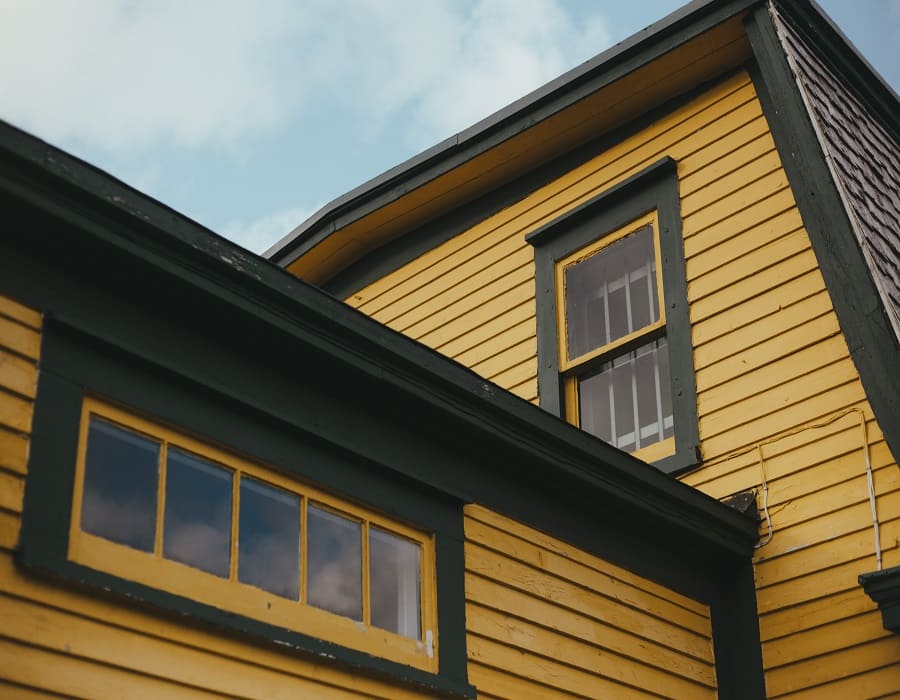Rain gutters are a homeowner’s ally in preserving the integrity of their home. But when heavy rain turns into a deluge, gutters overflowing can become a cause for concern.
In this comprehensive guide, we’ll delve into the reasons behind gutters overflowing in heavy rain. Explore whether it’s considered normal, and provide insights into prevention and solutions to keep your home safe and dry.
Why do my gutters overflow in heavy rain?
Gutters overflowing in heavy rain due to a combination of factors, often stemming from an overwhelmed drainage system. Some common reasons include:
-
Insufficient Gutter Capacity
One of the primary reasons for overflowing gutters is their inability to handle the volume of water during intense rain. If the gutter capacity is not adequate for the rainfall intensity, overflow becomes inevitable.
-
Clogged Gutters and Downspouts
Accumulated debris, leaves, and dirt can clog gutters and downspouts, obstructing the flow of water. This blockage forces water to overflow the sides of the gutters rather than being channeled away.
-
Ice Dams in Cold Climates
In colder regions, the formation of ice dams can obstruct the flow of water in gutters. As snow and ice melt, the water can be trapped behind the dam, causing overflow. Proper insulation and ventilation can help prevent ice dam formation.
-
Gutter Slope Issues
Incorrectly sloped gutters may lead to improper water flow. If the slope is not steep enough, water can accumulate in certain sections, causing overflow during heavy rain.
-
Damaged or Sagging Gutters
Over time, gutters may deteriorate or sag, disrupting the intended flow path. This compromise in the gutter’s structural integrity can contribute to overflow issues.
-
Inadequate Number of Downspouts
The number and placement of downspouts play a crucial role in efficiently draining water. If there are too few downspouts or if they are poorly positioned, water may not be directed away quickly enough, resulting in overflow.
Can Gutters Overflow in Heavy Rain?
Yes, gutters can overflow in heavy rain, but it’s crucial to distinguish between occasional overflow during severe weather conditions and persistent overflow, which signals a problem.
Gutters are designed to handle a certain capacity of water, but factors like clogs, damage, or inadequate design can disrupt their functionality, leading to overflow.
Is It Normal for Gutters to Overflow in Heavy Rain?
While it’s not unusual for gutters to overflow during intense downpours, it’s a sign that the system may need attention.
Gutters are designed to handle typical rainfall, but extreme weather events can put any system to the test. Overflow should be occasional, and persistent issues signal the need for corrective measures.
Unraveling Prevention Strategies: Should Gutters Overflow in Heavy Rain?
- Regular Gutter Maintenance
To avoid overflow, prioritize regular gutter maintenance. Clean gutters at least twice a year, removing leaves, twigs, and debris that could impede water flow.
- Properly Sized Gutters and Downspouts
Ensure your gutters and downspouts are appropriately sized for your roof area. Matching the system’s capacity to your home’s water runoff is key to preventing overflow.
- Assess Gutter Capacity
Evaluate the capacity of your gutters in relation to the local average rainfall. If your area experiences frequent heavy rain, consider upgrading to gutters with a higher capacity.
- Repair Damaged Gutters
Address any sagging or damaged sections promptly. This includes repairing leaks, reattaching loose gutters, and replacing any corroded or worn-out components.
- Professional Inspection
If issues persist, seek the expertise of a professional. A thorough inspection can identify underlying problems and provide tailored solutions to prevent gutter overflow.
- Gutter Guards for Protection
Consider installing gutter guards to prevent debris from entering and clogging the gutters. This not only reduces maintenance efforts but also minimizes the risk of overflow.
- Correcting Gutter Slope and Alignment
Inspect the slope and alignment of your gutters. Sagging or improperly pitched gutters can impede water flow. Adjusting their alignment ensures efficient drainage.
- Rainwater Collection Systems
Implementing rainwater collection systems, such as rain barrels or cisterns, can divert excess water during heavy rain, reducing the load on the gutter system.
Addressing Gutters Overflowing in Heavy Rain
-
DIY Solutions for Overflowing Gutters
For minor issues, homeowners can tackle the problem themselves. Simple tasks like cleaning gutters, adjusting slope, and installing gutter guards can make a significant difference.
-
Seeking Professional Assistance
Persistent or complex issues may require professional intervention. Gutter specialists can conduct a thorough inspection, identify underlying problems, and implement effective solutions.
Conclusion
In conclusion, while gutters overflowing in heavy rain, it’s crucial to address the root causes to prevent potential damage to your home. Regular maintenance, proper sizing, and strategic preventive measures can mitigate the risk of overflow and ensure your gutter system functions effectively even in the most challenging weather conditions.
By understanding the anatomy of gutter overflow, discerning normalcy, and embracing proactive solutions, homeowners can navigate heavy rain with confidence, safeguarding their homes from water-related woes.

